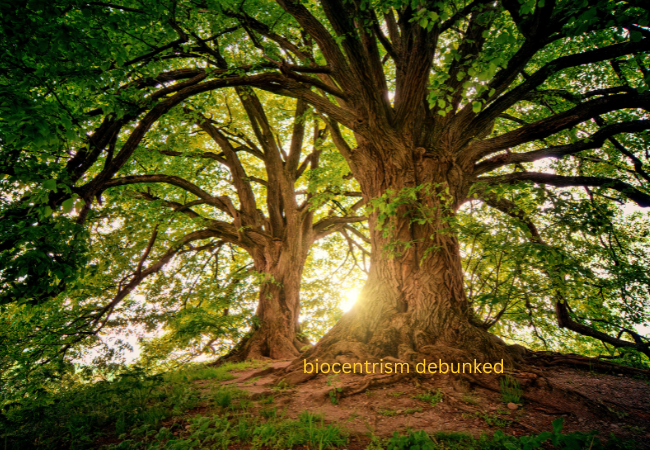What is Biocentrism?
Biocentrism posits that life and consciousness are central to understanding the universe. This theory was notably advanced by Robert Lanza, who argues that life creates the universe rather than the other way around. According to biocentrism, our understanding of the universe is deeply entwined with our consciousness, suggesting that without observers, the universe would not exist.
Core Principles of Biocentrism
The Central Role of Consciousness
At the heart of biocentrism is the idea that consciousness is fundamental and gives rise to the material universe. This view challenges the traditional scientific perspective, which holds that consciousness arises from physical processes within the brain.
The Universe and Life Connection
Biocentrism suggests that the universe is fine-tuned for life, implying a symbiotic relationship between the two. Proponents argue that the laws of physics are precisely configured to allow for life, a claim often cited as evidence of a deliberate, consciousness-driven creation.
Scientific Basis of Biocentrism
Misinterpretation of Quantum Mechanics
Biocentrism often misinterprets quantum mechanics to support its claims. For instance, the observer effect in quantum physics is frequently cited as evidence that consciousness directly influences the material world. However, this interpretation is a gross oversimplification of complex scientific principles.
Misuse of Biological Concepts
Proponents of biocentrism debunked also misuse biological concepts, suggesting that biological processes are evidence of consciousness shaping reality. In reality, biological evolution and development can be explained through natural selection and other well-established scientific theories without invoking consciousness as a causal factor.
Debunking Biocentrism: Logical Fallacies
Lack of Empirical Evidence
One of the major criticisms of biocentrism is its lack of empirical evidence. Scientific theories are built on testable and falsifiable hypotheses, but biocentrism often relies on speculative assertions that cannot be empirically verified.
Circular Reasoning
Biocentrism frequently employs circular reasoning, where the conclusion is embedded within the premise. For instance, it assumes that consciousness creates reality and then interprets various phenomena as proof of this assumption, rather than testing the hypothesis independently.
Biocentrism vs. Established Science
Differences from the Scientific Method
Examples of Contradictions with Proven Theories
There are numerous examples where biocentrism contradicts established scientific theories. For instance, the idea that consciousness predates the material universe conflicts with the Big Bang theory and our understanding of cosmology and physics.
Case Study: Misinterpreted Experiments
Analysis of Key Experiments Cited by Biocentrists
Biocentrists often cite experiments such as the double-slit experiment to support their claims. However, these experiments are usually misunderstood or misrepresented. The observer effect in quantum mechanics, for instance, does not imply that human consciousness creates reality, but rather that measurement affects the state of quantum particles.
How These Experiments Are Misunderstood or Misrepresented
In many cases, biocentrists conflate the role of an observer with human consciousness, ignoring that in quantum mechanics, “observation” can simply mean interaction with a measurement device, not conscious awareness.

Expert Opinions on Biocentrism
What Scientists Say
Most scientists dismiss biocentrism as pseudoscience. They argue that it lacks the rigorous testing and empirical support that characterize genuine scientific theories. Critics highlight that biocentrism often distorts scientific principles to fit its narrative.
Critiques from the Scientific Community
Prominent physicists and biologists have critiqued biocentrism debunked for its speculative nature and failure to provide testable hypotheses. They caution against the allure of pseudoscientific ideas that offer simple explanations for complex phenomena.
Psychological Appeal of Biocentrism
Why People Are Drawn to Pseudoscience
Biocentrism appeals to many because it places humans at the center of the universe, providing a sense of significance and purpose. In a complex and often indifferent cosmos, such theories offer comfort and a semblance of control.
The Comfort of Anthropocentric Views
Humans have a natural tendency to view themselves as central to the universe. Biocentrism taps into this anthropocentric bias, offering a worldview that elevates human consciousness above the material world.
Impact of Biocentrism on Society
Influence on Public Understanding of Science
The spread of biocentrism and similar pseudoscientific theories can distort public understanding of science. When people accept these ideas without critical examination, it undermines scientific literacy and rational discourse.
Potential Harm in Promoting Pseudoscience
Promoting pseudoscience like biocentrism can have tangible negative effects. It can lead to the rejection of well-established scientific principles and hinder progress in education and research.
Popular Misconceptions about Biocentrism
Common Myths and Misunderstandings
One common myth is that biocentrism is supported by cutting-edge scientific discoveries, particularly in quantum physics. This is a misunderstanding, as genuine scientific discoveries do not support the central claims of biocentrism.
Clarifying the Facts
It’s important to clarify that while quantum mechanics and biological processes are complex and not fully understood, this does not mean that speculative theories like biocentrism are valid. Science relies on rigorous testing and validation, not on untestable philosophical assertions.
Educational Approaches to Counter Biocentrism
How to Teach Critical Thinking
Teaching critical thinking is essential in countering pseudoscientific beliefs. This involves educating people on how to evaluate evidence, understand scientific methods, and recognize logical fallacies.
Encouraging Scientific Literacy
Promoting scientific literacy helps individuals distinguish between science and pseudoscience. This includes understanding the basics of scientific principles and the process of scientific inquiry.
The Future of Biocentrism
Will Biocentrism Fade Away?
The persistence of biocentrism will likely depend on continued efforts to promote scientific education and critical thinking. As more people become scientifically literate, the appeal of pseudoscientific theories may diminish.
The Role of Continued Scientific Education
Continued scientific education is crucial in combating pseudoscience. By fostering a deeper understanding of science, we can help ensure that pseudoscientific theories like biocentrism are recognized and rejected.




